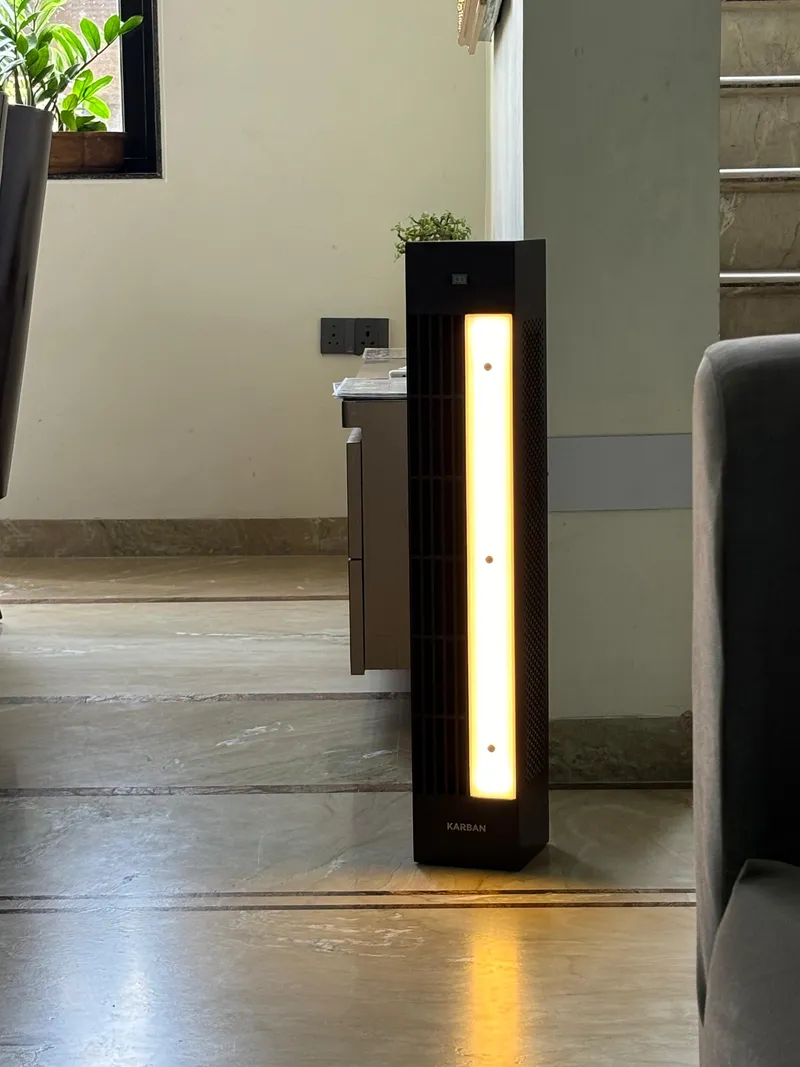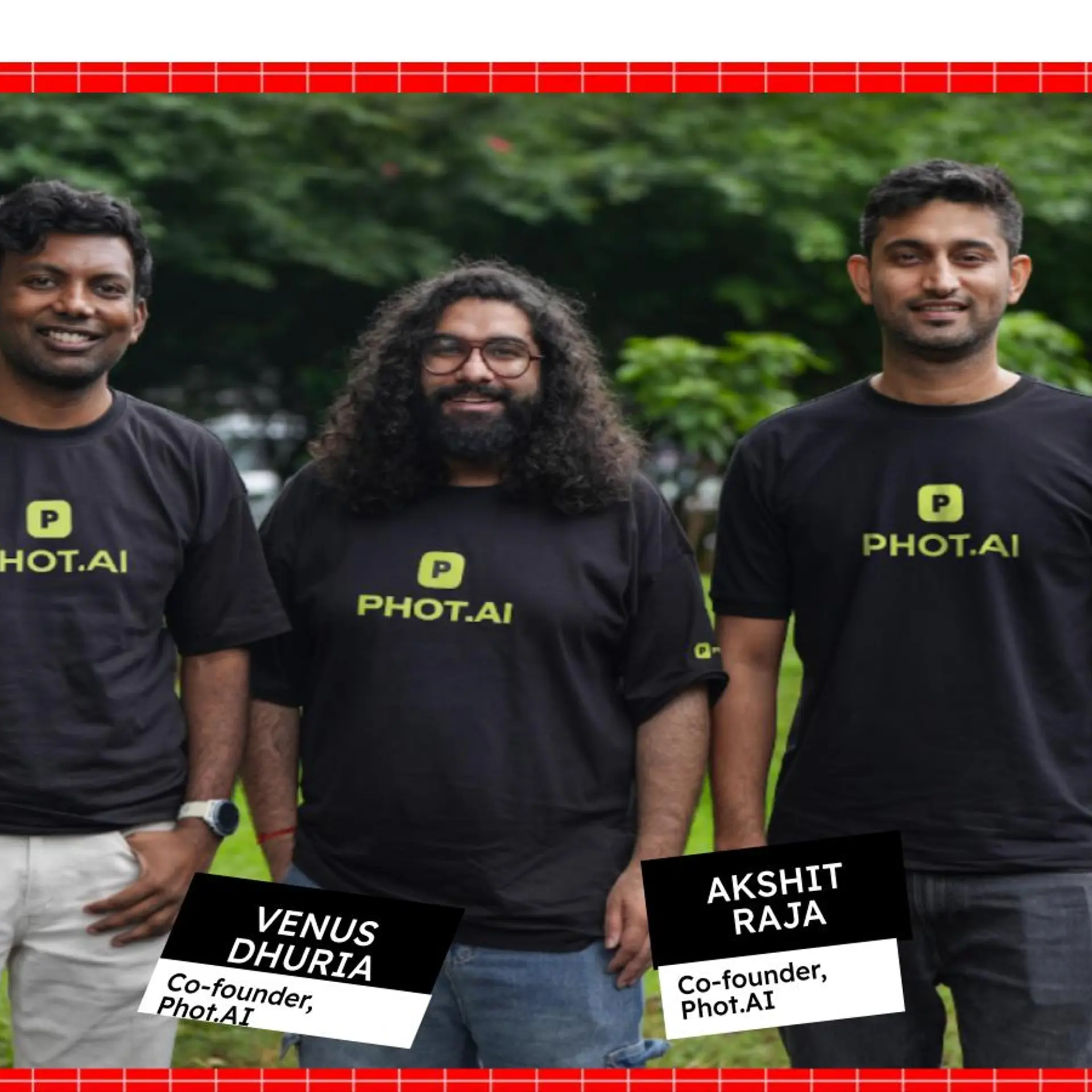How this Jaipur-based startup is helping people breathe easy with IoT-enabled bladeless fans
Founded in 2021 by Karan Bansal and Tanya Goyal, KARBAN Envirotech offers a multifunctional device that combines a bladeless fan, air purifier, and chandelier into one unit.
With indoor air pollution posing a growing health risk, consumers are becoming increasingly aware of the need to improve air quality inside their homes.
Reports from the World Health Organisation and other studies highlight that indoor air pollution can be up to five times worse than outdoor air pollution due to contaminants from cleaning agents, cooking, and other household activities.
To address this growing concern, Jaipur-based Envirotech has introduced a bladeless ceiling fan that combines air purification, lighting, and IoT-enabled climate control to redefine indoor air quality management.
"Air quality is a universal challenge, but when we consider our own living spaces, we find that indoor pollution often goes unchecked. That’s something I wanted to change," Bansal, Co-founder of KARBAN, tells YourStory.
Founded in 2021 by husband-wife duo Karan Bansal and Tanya Goyal, KARBAN Envirotech is a consumer electronics startup focused on creating IoT-enabled, energy-efficient climate control solutions tailored for modern homes.
Using advanced technologies like Computational Fluid Dynamics (CFD) and insights from aerospace engineering, it aims to optimise air circulation and improve indoor air quality with multifunctional, space-saving devices.
The founders initially invested Rs 15 lakh from their personal savings to bootstrap the startup, which currently has a team of 30 employees.
Journey from aerospace to air purification
Bansal's interest in mechanical engineering and aerodynamics began in school. After earning his undergraduate degree in mechanical engineering from IIT Guwahati, he pursued a master's in aerospace engineering at Purdue University, known for its research in aerodynamics and CFD.
He then joined Convergent Science, a computational fluid dynamics (CFD) software company, where he contributed to complex projects like new compressors and rocket components.
During his years in the U.S., Bansal realised the potential of applying his expertise in CFD to address India’s pressing air quality and energy efficiency challenges. He knew that air pollution and the inefficiency of traditional air-cooling systems were significant issues in Indian homes.

KARBAN Airzone Lite
"I had worked on aerodynamics and fluid dynamics for years, but when I came back to India, I realised that there was a huge gap in the consumer appliance market, particularly in climate control solutions," says Bansal.
"I saw an opportunity to bring together my passion for technology and my engineering background to create a product that would not only improve indoor air quality especially to address issues like air pollution that are so pressing in India,” he adds.
The initial idea was to create a bladeless fan that addressed both cooling and air purification. However, as Bansal designed the first prototype, he realised that a single-function product wouldn't meet the diverse needs of modern households.
"The problem with traditional home appliances is that they take up a lot of space, and each device serves just one function. We wanted to create something that combined multiple functions in one compact design—something that would save space and reduce costs for consumers," Bansal explains.
The design process involved numerous iterations of prototyping. “It took us around 20-30 iterations to get the design right. The initial models are handcrafted, and we faced challenges with sourcing materials that were both functional and aesthetic.” Bansal says.
The current product features a wooden body, chosen for budget constraints. "Wood can be cheaper if sourced locally, especially for small batch or artisanal production, and require less upfront investment in machinery and tooling compared to plastic molding," he adds.
However, the startup plans to switch to a plastic base in future models for more cost-effective mass production.
"As a bootstrapped startup, we had to make choices that wouldn’t compromise quality but would allow us to get the product to market. Wood gave us that balance," he states.
Building a multi-functional device
KARBAN offers two products, Airzone and Airzone Light, each available in three colour and light variants, totaling 18 SKUs. Airzone is designed for larger spaces, while Airzone Light is intended for compact areas.
With an investment of Rs 10 lakh from IIM Ahmedabad, the first prototype of its flagship product Airzone was launched in November 2022, followed by the introduction of Airzone Lite in January 2024.
The startup, operating as a direct-to-consumer (D2C) model, sold around 1000 units in its first nine months, generating around Rs 1 crore through its website and Amazon.
KARBAN also has an offline distribution network with around 10 dealers in cities like Coimbatore, Pune, Jaipur, Hyderabad, Chennai, and Bangalore.
“The products incorporate advanced computational fluid dynamics algorithms and IoT integration for optimal performance. The ceiling-mounted Airzone fan uses optimised air circulation and purification mechanisms to provide an energy-efficient and safe climate control solution. Its bladeless design ensures quiet operation while effectively maintaining indoor air quality,” Bansal asserts.
Its Forever Pure Technology stabilises air quality, delivering a consistent stream of clean air with minimal energy consumption, operating at just 30 watts for both cooling and purification.
The startup’s manufacturing unit is located in Jaipur and it can produce about 100-120 units in a day. It takes about 40 hours to build a single unit.
The way forward
The Indian smart home appliances market is projected to generate a revenue of $ 7,197.6 million by 2030, with a compound annual growth rate of 11.1% from 2023 to 2030, as per Horizon Grand View Research.
To capitalise on this space, KARBAN has raised about Rs 9.3 crore so far, from investors such as All in Capital, Titan Capital, Rainmatter, Urban Company, and the JK family office.
The startup plans to reach 50,000 to 60,000 households by the end of FY2025, with two new product versions expected to launch next year.
It also plans to expand its presence through offline channels, including experience centres, where customers can see the products in action before purchasing.
“We want to give our customers the ability to experience the product in person. An experience centre will allow them to see how the product works in real time and help build brand loyalty,” he adds.
KARBAN aims to expand its global footprints beyond India and enter international markets, including the U.S., Europe, and the Middle East. “The potential for growth is immense. Our products are designed with global needs in mind, and we are excited to introduce them to new markets," Bansal signed off.
Envirotech was part of YourStory’s Tech30 list, which looked at India’s 30 most promising startups poised to become major disruptors across fields.
Edited by Jyoti Narayan








